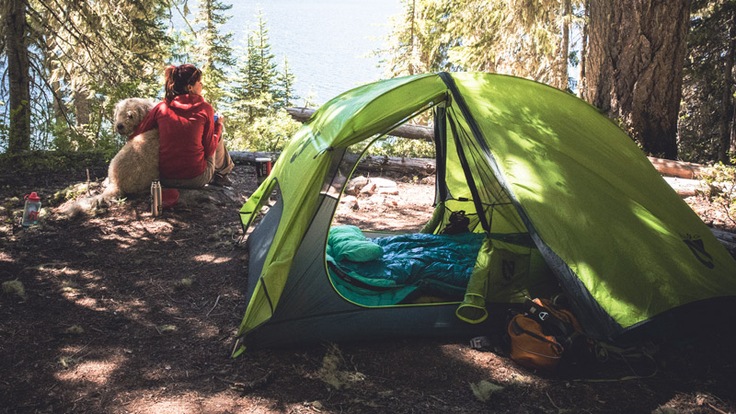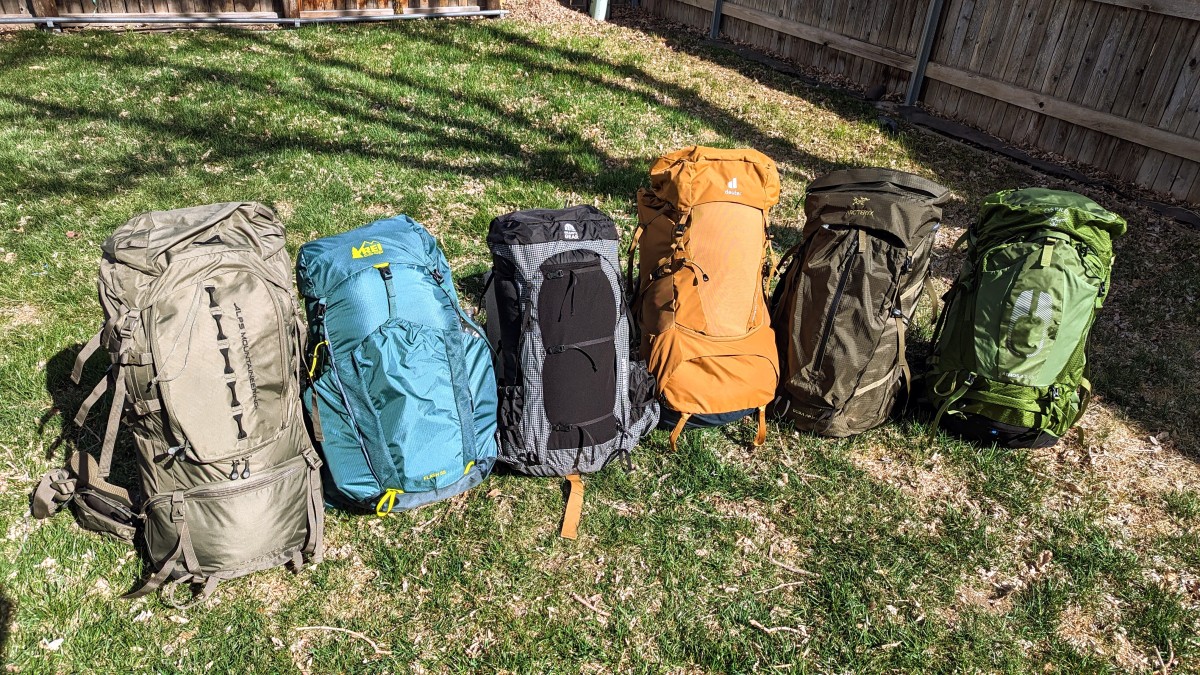How Much Should Backpacking Tent Weight: Backpacking tents should weigh about three pounds or less to keep the overall weight minimal. Consider options that weigh less if you’re very cautious about every ounce.
Backpacking tent weight is a crucial consideration for outdoor enthusiasts. The weight of your tent significantly impacts your overall pack weight during long hikes, making it imperative to choose a lightweight model. However, sacrificing durability and weather protection for weight may not be ideal, emphasizing the importance of balancing weight and performance in the right way.
With various options available in different weight classes, selecting the best backpacking tent becomes critical for comfort and performance during outdoor adventures. Therefore, a thorough understanding of backpacking tent weight can significantly influence your overall hiking experience.

Credit: www.rei.com
How Much Should Backpacking Tent Weight: Factors To Consider
When considering how much a backpacking tent should weigh, it’s important to balance factors such as durability, weather protection, and interior space. Aim for a weight of around three pounds or less for your tent and pack; even lighter options are available if you’re weight-conscious.
Choose a tent that meets your needs without sacrificing comfort and functionality.
Factors to Consider
When it comes to selecting a backpacking tent, considering the weight is crucial. Your tent’s weight directly impacts your backpack’s overall weight, affecting your comfort and mobility during your outdoor adventure. There are several factors to consider when evaluating the weight of a backpacking tent, including weight classes, interior space, durability, and weather protection.
Weight Classes of Backpacking Tents
One of the primary considerations regarding backpacking tent weight is the weight class. Backpacking tents are generally categorized into three main weight classes: ultralight, lightweight, and standard. Each weight class offers trade-offs in terms of weight, durability, and cost.
Interior Space
Interior space is a crucial factor to consider when evaluating backpacking tent weight. While ultralight tents offer minimal interior space, lightweight and standard tents provide more room for movement and storage.
Durability
The durability of a backpacking tent directly influences its weight. Ultralight tents often use delicate materials to reduce weight, which may compromise the tent’s durability. On the other hand, standard tents typically offer enhanced durability at the expense of additional weight.
Weather Protection
When assessing backpacking tent weight, the level of weather protection should not be overlooked. Ultralight tents may sacrifice robustness in extreme weather conditions, whereas heavier tents often offer better protection against wind, rain, and snow.
In conclusion, when choosing a backpacking tent, it is essential to carefully consider the weight and how it aligns with your specific needs and priorities. You can select a tent that strikes the right balance between weight and functionality for your outdoor adventures by evaluating the weight class, interior space, durability, and weather protection.

Credit: www.cnn.com
Comparison And Reviews Of Popular Tents
When it comes to backpacking tents, determining the ideal weight is crucial. Strive for a pack and tent weighing around three pounds or less to start on the right foot. Even lighter options are available if you want to shave off more ounces.
Nemo Hornet Elite Osmo Tent
The NEMO Hornet Elite OSMO Tent is a reliable choice for backpackers. Weighing just 1 pound 11 ounces, it offers a good balance between weight and space.
Msr Hubba Hubba Nx
The MSR Hubba Hubba NX is known for its durability and weather resistance. At 3 pounds 8 ounces, it’s a bit heavier but provides more space and protection.
Marmot Tungsten
The Marmot Tungsten is a versatile tent, weighing 4 pounds 13 ounces. It offers ample room for two people and has a durable construction.
Big Agnes Seedhouse Tent
The Big Agnes Seedhouse Tent is lightweight, weighing 2 pounds 8 ounces. It’s ideal for solo backpackers who prioritize weight savings.
Big Agnes Blacktail
The Big Agnes Blacktail is a spacious tent weighing 5 pounds 3 ounces. It’s suitable for those who prioritize comfort and roominess overweight.
Hyke & Byke Yosemite Hiking & Backpacking Tent
The Hyke & Byke Yosemite Tent is a budget-friendly option, weighing 3 pounds 14 ounces. It provides a good balance of affordability and performance.
When it comes to budget-friendly options, the Nemo Hornet, REI Co‑op, and Marmot Catalyst are popular choices, offering a good combination of price and performance.
—
This section provides an overview of popular backpacking tents, including their weights and key features. It aims to help backpackers make informed decisions based on their specific needs and preferences. Each description is concise and informative, ensuring readers can easily compare the tents. The use of HTML syntax is suitable for WordPress, and the content is presented in a clear, organized manner.
Seeking Advice And Opinions
When considering how much a backpacking tent should weigh, striving for a weight of three pounds or less is important. Opting for lighter options can help reduce the overall weight of your backpacking gear.
Quora: How Heavy Should A Backpacking Tent Be?
Quora has some insightful advice if you’re wondering how heavy a backpacking tent should be. According to experienced backpackers, aiming for a pack and tent combo that weighs around three pounds or less is ideal. This will help keep your overall gear weight in check, allowing for a more comfortable and enjoyable backpacking experience. However, if you’re aiming for an ultralight setup, even lighter options are available for those who are counting every ounce.
Reddit: How Much Does A Backpacking Tent Weigh?
Another popular platform to seek advice and opinions is Reddit, and when it comes to the weight of backpacking tents, this community has some valuable insights. The weight of a backpacking tent typically depends on various factors, such as the size, materials used, and overall design. However, as a general guideline, backpackers on Reddit suggest aiming for a tent that weighs around three pounds or less. This ensures a good balance between weight and functionality, allowing you to comfortably carry your gear while still having a reliable shelter in the wilderness.
Switchback Travel Forums: Backpacking Tent Weight
The Switchback Travel Forums are another great resource for backpacking enthusiasts looking for opinions on tent weight. When considering the weight of a backpacking tent, it’s essential to take into account various factors such as interior space, durability, and weather protection. While some backpackers may prioritize a lighter weight for easier carry, others prefer a slightly heavier tent that offers added durability and performance in harsh conditions.

Credit: www.outdoorgearlab.com
Frequently Asked Questions On How Much Should Backpacking Tent Weigh
Is 4 Lbs Heavy For A Backpacking Tent?
A 4-pound backpacking tent is considered heavy, as lightweight tents are preferred for easier carrying.
Is A 5 Pound Tent Too Heavy For Backpacking?
A 5-pound tent may be too heavy for backpacking, as lighter options are easier to carry.
Is 6 Pounds Too Heavy For A Backpacking Tent?
A backpacking tent weighing 6 pounds may be considered heavy, as most backpackers aim for a tent that weighs around 3 pounds or less. However, lighter options are available if you’re looking to minimize weight.
Is A 7 Pound Tent Too Heavy For Backpacking?
A 7-pound tent may be too heavy for backpacking. Opt for a lighter tent that weighs around 3 pounds or less for a better backpacking experience.
Conclusion
To find the ideal weight for a backpacking tent, it’s essential to consider weight as a crucial factor in your gear selection. Aim for a pack and tent, each around three pounds or less, and the same goes for your sleeping bag and pad.
Remember, even lighter options are available if you’re willing to shave off a few more ounces. Considering these weight considerations, you can ensure a more comfortable and enjoyable backpacking experience. Choose wisely and pack light!
